The more Manju Kapur writes, the more accolades she seems to collect. The Indian novelist published her first novel Difficult Daughters in 1998, and was rewarded with the Commonwealth Prize for best first novel. Her next novel, A Married Woman, was shortlisted for the Encore Award; her third novel, Home, was nominated for the Hutch Crossword Book Award. And so on.
What makes Manju Kapur’s books so endlessly readable? She writes about something relatable: families and the lives of women. Each of her novels examines the roles of womanhood—being a mother, a daughter, a friend, a wife. And each of her novels explores these themes with “quiet intelligence and wry, deadpan humor” (The Observer).
Recently, Early Bird Books reached out to Manju Kapur to discuss her writing. Keep reading to discover how she started her first novel, what she’s been working on during quarantine, and the books she wants to tell the world about.
What inspired you to write your first novel, Difficult Daughters? Were you surprised that it found such a large audience in the United States?
My foray into writing was tentative. I was reaching 40 and had nothing much to show for it. Ambition raised its shy and modest head. My friends were writing and getting published, maybe I could too. I started out with a protagonist somewhat akin to me, a middle class, middle aged teacher at a university.
To understand her I looked at her mother’s life, and to understand that, I went further back to her mother. Eventually Difficult Daughters grew into a historical novel. But with rejections and constant rewrites, the going was slow. Eight years in fact.
I was indeed surprised that Difficult Daughters found a large audience in the US. I was writing about women who lead very constrained lives and I didn’t think women in the West lead that kind of life. But clearly it struck a chord. To me that meant that despite apparent progress women face similar emotional conflicts.
Much of your writing focuses on the status of women in India, and the ways they rebel against that status quo. Why do you think these kinds of stories are so popular, and what do you hope readers take away from reading your novels?
No matter who they are, and in what social strata, women—at least in India—juggle two kinds of lives; the professional and the public along with the private and the family (which is another kind of profession). Life is a series of constant negotiations.
I describe situations to make people more aware of them, so that it is obvious how certain things that are taken for granted are fundamentally unfair. Maybe if this is recognized enough things can change.
Related: The Best Books by Indian Authors You Haven't Read Yet
In The Immigrant, an Indian woman moves to Canada for an arranged marriage. Did your own time in Canada shape how you wrote about the experience of assimilating to a new culture?
Absolutely. A friend told me, write about the immigrant experience in the US. (I.e., who wants to read about Canada?) And of course there are more immigrants in the US—but I can only write about the things I know. This is both my failing and my strength.
Being an immigrant in Canada back in the 70s I realized how dissimilar an Indian in India was from an Indian anywhere else in the world. There are many novels about the immigrant experience, and most of them deal with what becomes a tightrope walk between two cultures. It’s the complexity of that that interests me. How do you reconcile the various parts of yourself, the yearning to belong along with differences that mean you cannot?
Related: 15 Powerful Books About Immigration
If you were challenged to write a genre novel, such as a mystery or science fiction novel, what would you write? Do you think you’d enjoy the experience?
I am hopeless at imagining unfamiliar worlds, so mystery without a doubt. And in fact I have already started one. While in lockdown I wanted to diversify, to travel in my mind since I couldn’t physically.
And what did I find? That after 35,000 words I was writing the stuff I usually do, describing a family and all the tensions within. The suspicion of murder was an added—almost extraneous—twist. Perhaps one really does end up telling the same story over and over, looking at it from every possible angle. The variety comes from there.
What’s the last book you read that you wanted to tell the world about?
This is such a difficult question to answer! I read a lot, and to suggest the primacy of one book is almost impossible. If I had to choose (I’ve just looked through my book list, my memory is horrible, so I write down all I read) I would choose W.G. Sebald, Rings of Saturn, or A Place in the Country. As meditations on life they are wonderful.
Manju Kapur Books
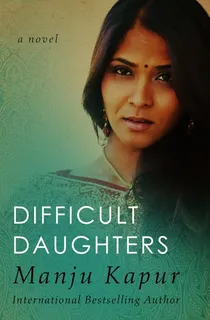
Difficult Daughters
Set against the tumult of the 1947 Partition, Manju Kapur’s acclaimed first novel captures a life torn between family, desire, and love.
“Intensely imagined, fluidly written, moving. Through our struggles with our parents, it flings us into their own momentous times, their youthful yearnings for love and independence and life.” —Vikram Chandra
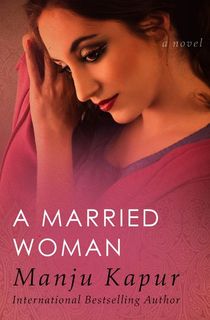
A Married Woman
A woman in an arranged marriage is liberated by a desire that threatens her family and future.
At first, Astha’s arranged union with handsome, worldly Hemant brings her great joy and passion. But even after bearing him a son and daughter, she remains unfulfilled. Her search for meaning takes her into a world of art and activism . . . and a relationship that could bring her the love and freedom she desires. But at what cost to her marriage and family?
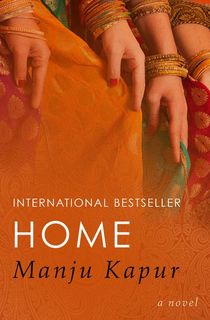
Home
A #1 bestseller in India: Three generations of Delhi shopkeepers confront a changing world.
Spanning thirty years, Home is an extraordinary novel about tradition, change, and finding a place in which to belong.
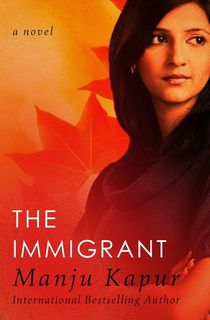
The Immigrant
In a world of rapidly changing values and traditions, an Indian woman enters into an arranged marriage to a man she barely knows and moves to distant Canada.
“Since her first novel . . . Manju Kapur has established herself as a chronicler of middle-class Indian manners, even earning comparison with Jane Austen for her sharp-eyed, finely tuned portraits of unremarkable lives.” —The Daily Telegraph
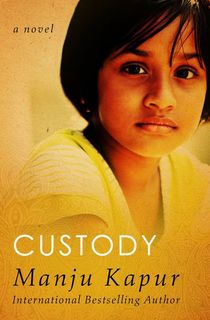
Custody
An unforgettable novel about what happens when a marriage collapses.
Set against the backdrop of upper-middle-class South Delhi, Custody is both a searing indictment of India’s judicial system and an intimate portrait of a failing marriage and a family.
